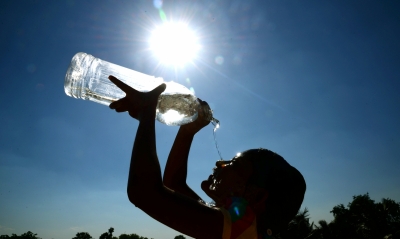
New Delhi: Some countries are especially badly hit by heat-related labour losses. For example, India currently loses around 259 billion hours annually due to the impacts of humidity and heat on labour, more than double previous estimates of 110 billion hours, says a study by Duke University.
Published in the journal Environmental Research Letters on Thursday, the study says that humidity and heat currently causes 677 billion hours of lost labour worth $2.1 trillion annually, and human-caused climate change is worsening these losses.
With 3.3 billion workers globally, it works out around 205 lost hours per person per year.
Heat, especially when combined with humidity, can slow people down when they’re performing heavy work such as in agriculture or construction. As the climate heats up further due to greenhouse gas emissions, every fraction of a degree of warming is causing more work time to be lost for heat-related reasons.
Over the last four decades, heat-related labour losses have increased by at least nine per cent (>60 billion hours annually) as global average temperatures rose about 0.4 degree Celsius because of human activities.
This new estimate of work lost to heat and humidity is about 400 billion hours greater than other widely-used estimates — roughly the same as the amount of work lost during the Covid-19 pandemic — due to the inclusion of more up-to-date data on how heat and humidity affect humans doing heavy work.
The new data found that labour productivity can be slowed down at lower heat and humidity levels than previously assumed.
India currently loses around 259 billion hours annually due to the impacts of humid heat on labour and worth an estimated Purchasing Power Parity (PPP) $624 billion.
The US loses PPP $98 billion of labour per year. Without rapid emissions cuts, climate change is set to further increase losses in already hot countries, and historically cooler countries will start to see more significant labour losses.
It is followed by China which loses 72 billion hours, up from an estimate of 24 billion; Bangladesh loses 32 billion hours, up from an estimated 15 billion; Indonesia loses 36 billion, whereas the previous estimate was 11 billion, and Vietnam loses 19 billion, up from an estimate of 8 billion.
In terms of changes, in the first 20 years of this century, India lost 25 billion more hours annually compared to the previous 20 years, China lost four billion extra hours per year, Bangladesh three billion, Indonesia two billion and Vietnam two billion.IANS



















